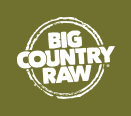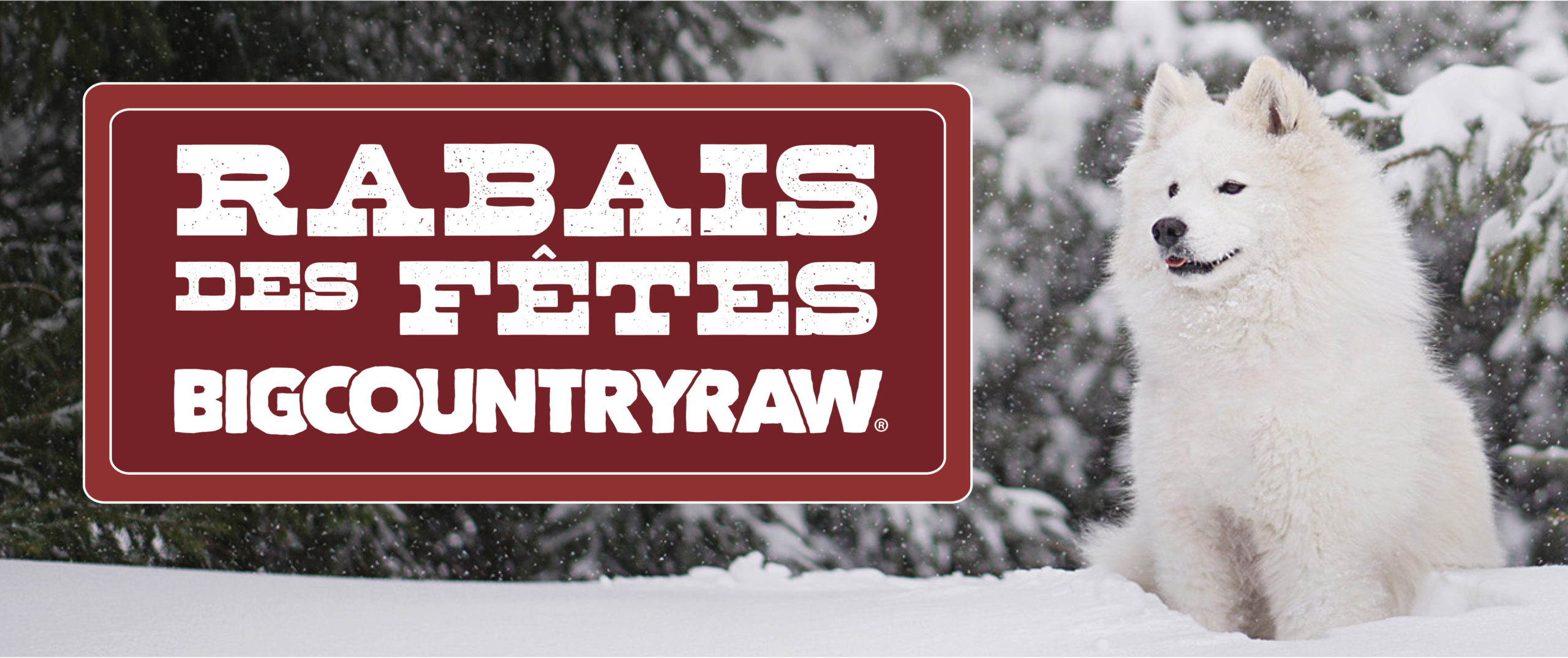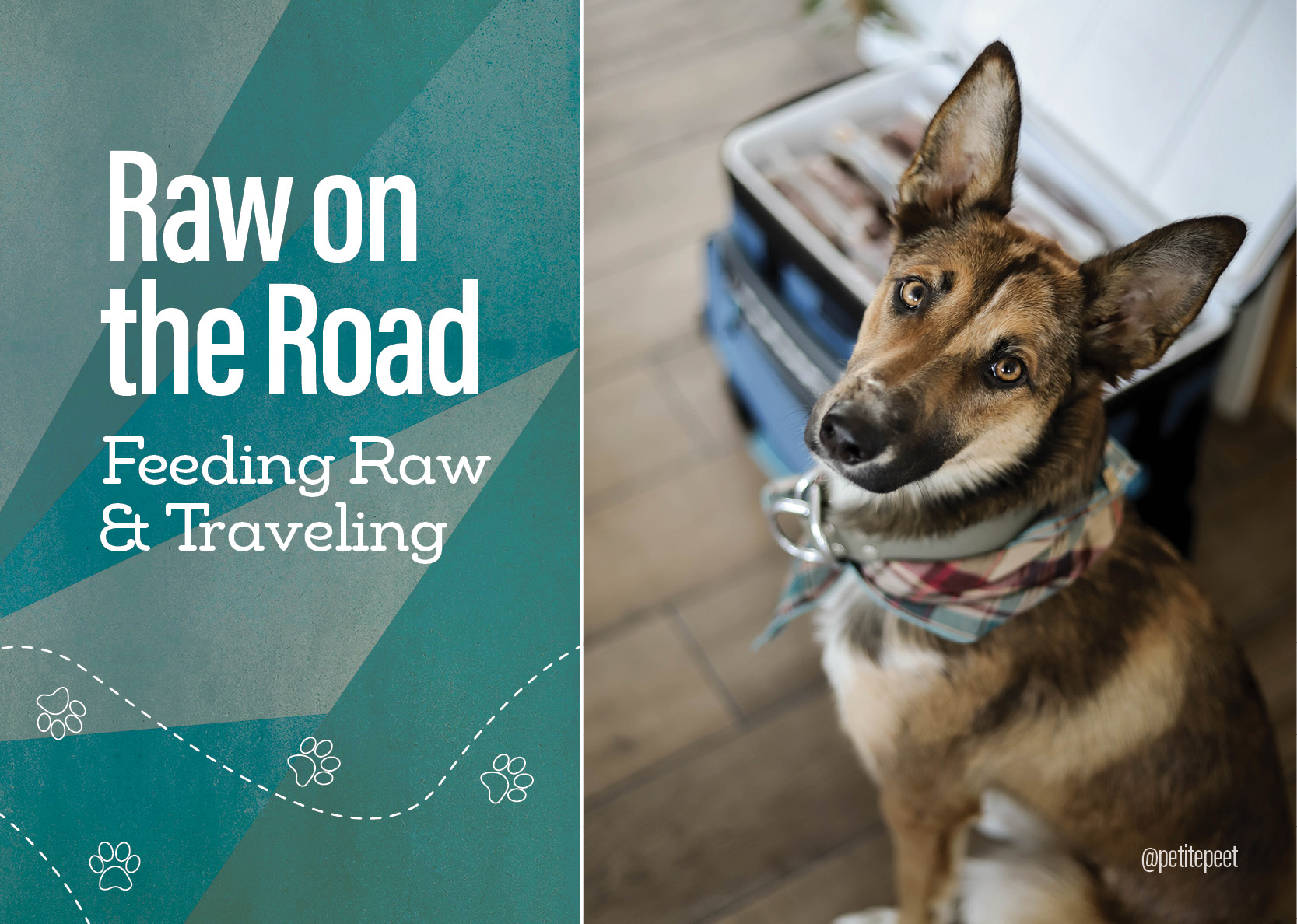By Julie Lauzon, agr, MSc, Pet Nutrition
For some people, hobbies and travel are the main reason why switching their pet to a raw diet seems inconvenient or even impossible. Although it can sometimes be difficult to bring raw on the road, there are many options available for raw feeders that want to keep feeding their pet a raw diet while enjoying their active lifestyle.
1. Bringing Raw on the Road
For most, it’s totally possible to simply bring your pet’s raw food with you. Big Country Raw’s 1 lb vacuum sealed pouches are perfect to fit in a cooler. If packed tightly and while frozen, they can stay cold and fresh for up to a week, while they slowly thaw. Remember, once completely thawed, you still have up to 3 days to use them – just make sure they’re kept at or below refrigerator temperature (4 degrees Celsius) by adding fresh ice to your cooler as needed. To keep it simple, the Dinners for dogs or Fare Game for cats are complete and balanced nutrition so you do not need to carry anything else. Simply include recipes that include fish, and even the omegas will be covered.
When traveling in Canada, another option is to shop at one of the 1500 retail stores that carry Big Country Raw. Our retailers span the country from Vancouver Island to Newfoundland, including some of the most remote areas of our fair land. If you find a pet specialty store along your travels, there will very likely be Big Country Raw in their freezers!
But what if you’re travelling to the US? Technically, meat products are not allowed to cross the international boundary and fruits and some other foods are also very restricted. Dry goods and pre-packaged snacks however, are permitted. Regarding dog food specifically, the only specification is that it must be sealed in its original container, be 20 kg maximum, and may not contain any sheep (lamb) or goat meat. The packaging must include the ingredient list and place of origin. The rules do not indicate that it cannot be raw so the assumption is that it would be allowable to cross. For those familiar with border crossing though, it often depends on the guard and the questions they ask. If you are willing to attempt taking Big Country Raw into the US, just make sure everything is frozen, sealed, and in the original packaging. The same rules apply to supplements.
2. Alternatives to Raw
It’s also possible to feed non-raw options during your vacation or trip. Caravan, a gently-cooked product line, is available in 4 different recipes (chicken, beef, turkey and salmon) and vacuum sealed in 1 lb packages, made up of meat, organs, high quality veggies, and supplements, balanced to meet the nutritional needs of puppies to adult dogs. The greatest advantage of cooked versus raw when traveling, is that once thawed, the product stays fresh much longer than raw. While raw should be fed within 3 days, maybe up to 5, the cooked meals can last up to 7 days once thawed. The best part, Caravan does not require any transition from your dog’s usual raw diet. It is so gently cooked that you can simply start feeding it to your dog on your first day of travel.
Over the years we have also established that it is okay to feed raw and kibble. Many dogs and cats do perfectly well on a mix of both, and it’s known that a little bit of fresh food is always better than none. So if feeding a diet of half kibble and half raw relieves you from the stress of traveling with your pet and doing a food transition during your trip, then that’s the way to go! There are also great freeze-dried options on the market. Though expensive, freeze dried can be fed during a short trip instead of raw, with a very short transition needed prior to leaving.
Traveling and having an active lifestyle shouldn’t keep you from feeding your pet healthy, raw, fresh, whole food. With just a little bit of organization, your dog can continue to benefit from eating a raw diet during travel. Humans do not eat dehydrated or processed food yearlong just because they go on vacation occasionally, and the same applies to our pets!


